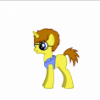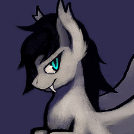Unleash The Magic Brass Quartet. A little taste of magic.
-
Similar Content
-
- 2 replies
- 135 views
-
- 1 reply
- 312 views
-
Why Do You Watch My Little Pony: Friendship is Magic? 1 2
By Venomous,
- my little pony: friendship is magic
- series
- (and 1 more)
- 45 replies
- 3,104 views
-
- 0 replies
- 258 views
-
Which pony would taste best? 1 2
By Guest,
- 33 replies
- 1,896 views
-
-
Recently Browsing 0 members
- No registered users viewing this page.






Recommended Posts
Create an account or sign in to comment
You need to be a member in order to leave a comment
Create an account
Sign up for a new account in our community. It's easy!
Join the herd!Sign in
Already have an account? Sign in here.
Sign In Now